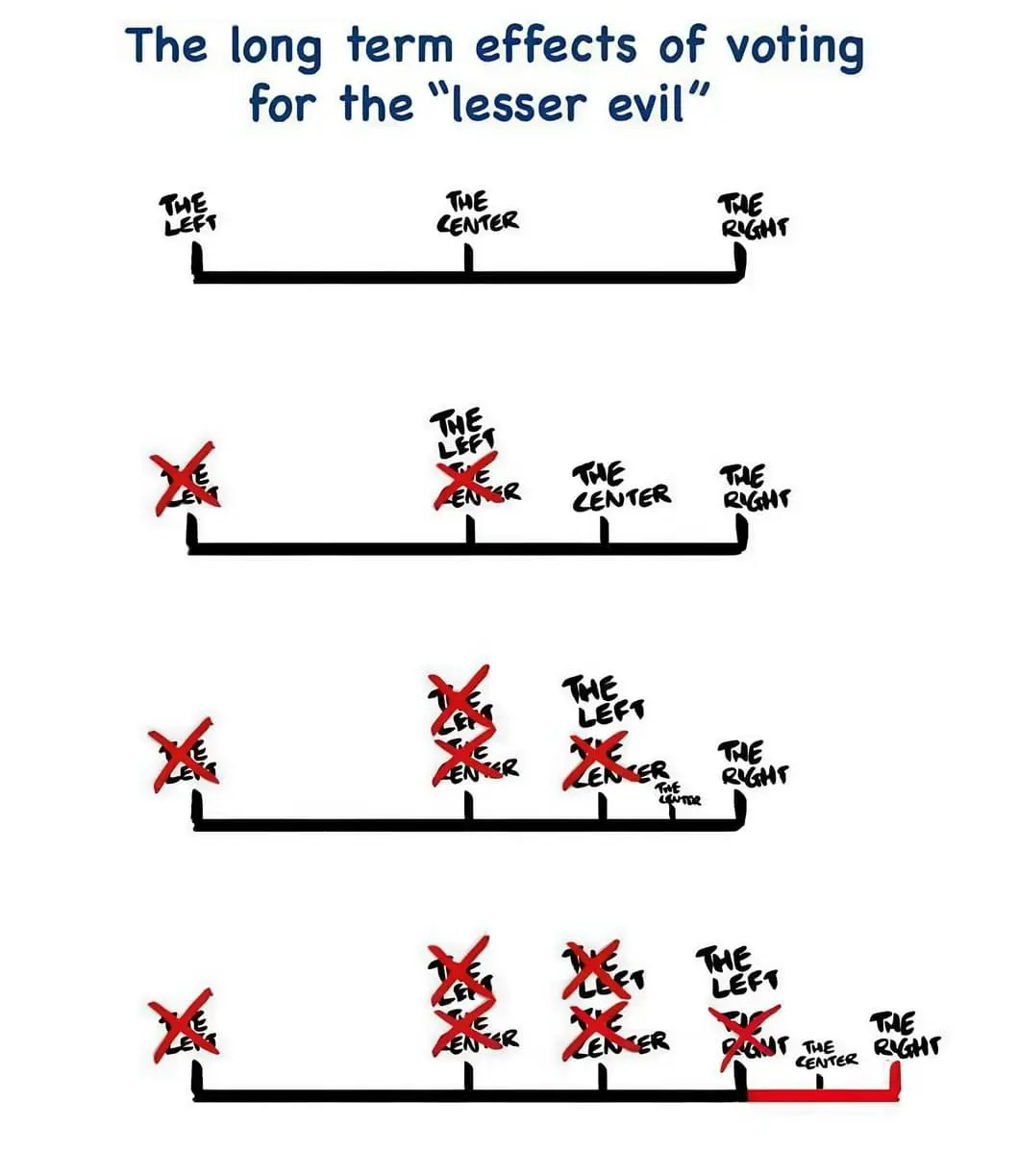this post was submitted on 17 Dec 2024
434 points (77.1% liked)
Memes
45886 readers
1088 users here now
Rules:
- Be civil and nice.
- Try not to excessively repost, as a rule of thumb, wait at least 2 months to do it if you have to.
founded 5 years ago
MODERATORS
you are viewing a single comment's thread
view the rest of the comments
view the rest of the comments

I don't think it's crazy in the slightest and see no reason why it "would never work", it's just not a conservative idea. Why did you feel the need to minimize it so?
Because it is creating a checks and balances for the president within the checks and balances of the current government. It would require such a constitutional change, it would require more actions than just a super majority as we believe it would.
Edit: sidebar. Each round of eliminations would present new questions, each candidate would submit. Some would be "illusion" of current or future events but were really past events. This prompting a past president or leader (Congress member, senator etc). To bring up and discuss what the false narrative was, showing what the realism had been. Then giving evaluation of how they responded at the time, and how it went right, wrong, and what could have gone better if done differently. Thus educating both the population and the candidates in doing so. Basically, the first reality TV program worth turning in for or watching brought to everyone via national TV/internet services for free.. and using the ad segments to pay for the costs associated with the applicants. Doing away with campaign fees.
Side bar 2: Yes that means if you serve the nation as a president/ congressperson/ senator / or ambassador you may be called upon to serve your country for a lecture... But that should be fair, as we pay the secret service to protect you for life. A lecture twice after you retire won't kill you. (Shit even Carter would have loved to do this 2 years ago because he wanted to believed in this country). And I would have called him to old.. but with cards and his choosing, I would have been greatful to hear him give peanuts to pinenuts
It's certainly an intriguing idea, but its not as good as the current system. It's a hyperreality of voting that would simply exaggerate flaws of the current system.
First off, good luck keeping anything anonymous. And, even if you could, candidate anonymity is a horrible idea, because you'd have even less accountability and more campaign dishonesty than you have now. Without anonymity, politicians have to at least try to fulfill campaign promises if they want to get reelected. But with anonymity, I can get elected and not follow through on campaign promises because when I run for reelection nobody knows which candidate is me and I can just lie again.
You'd probably also seriously exacerbate political capture. In the interest of putting forth the best policy proposals, people like presidential candidates would certainly outsource writing to powerful lobbies that have the top policy analysists and writers. And these lobbies or other groups would almost certainly only offer services in exchange for certain favors once the candidate is in office. It would lead to massive corruption, more than we're already seeing, because at least without anonymity we can put names to faces and prompt some honesty.
Plus, you'd cut out so many candidates. Not everyone excels at writing. Some candidates might articulate their plans best in real time and on a stage (like JFK, or Reagan, etc.). Demanding that everyone only write and publish policy proposals removes the ability to gauge how good they'd be in office, interacting with staff and other world leaders.
Combining anonymity with a bracketed system would also create an echo chamber, where candidates learn each other's messages every round and the survivors shift to mimic the most popular message to bolster their odds of making it into office. In the end, all 3 people will sound the same in a desperate bid to copycat the clear winner and steal votes. Which obviously creates issues for voting again, like the aforementioned Condorcet's paradox.
Also, voter engagement. We can barely get people to turnout when they are emotionally won-over by a given personality candidate, it would probably crater if voting were a purely rational process as @lifeinmultiplechoice suggests. If you take after John Adams or Rousseau, this isn't entirely problematic because you don't believe in carrying out the principle of "the will of the people" in a literal sense (not to say J.A. was Rousseauian, he obviously was not, but they overlap in this area of restricted voting). But if you are interested in accurately representing "the will of the people" in a non-gnostic sense, this is obviously an unsatisfactory system.
This isn't meant to dismiss @lifeinmultiplechoice out of hand, I admire the imagination. I think they're onto something when they point out that technology has sort of... swapped lenses on the camera of Democracy. We can seriously reinvent Democracy in ways that overcome previous hurdles due to all our technology now... we just don't know how exactly yet.